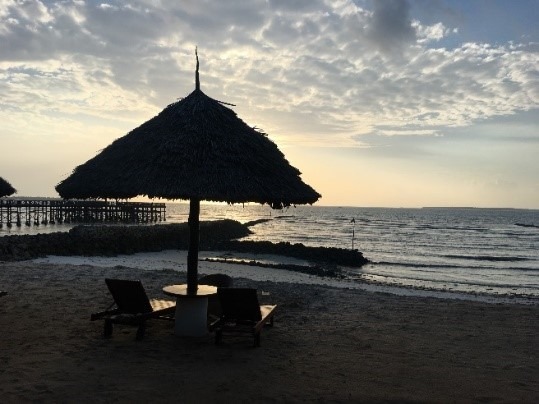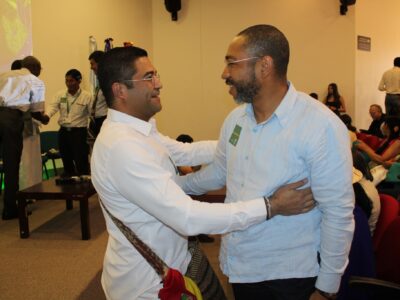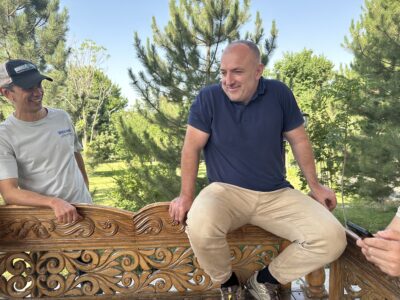
I sat in a beach chair at dawn, watching the sun rise over the Indian Ocean. Our organization was holding meetings was there, 20 kilometers north of Dar es Salaam, Tanzania. I had woken up early with jetlag and had a few moments to appreciate the beauty and sounds of the sea before the meeting began.
Sitting in the beach chair was peaceful and relaxing. I closed my eyes for a minute and listened to the waves roll in.
When I opened my eyes a minute later, I noticed that washed up on the shore, about three feet in front of me, was an industrial light bulb just waiting to be stepped on. As I learned later that day, so much trash from Dar es Salaam washes up on the shore that, morning and night, a crew rakes bushels of plastic and garbage off the beach. So, my morning bliss was irretrievably busted, and I resolved to restrict my swimming to the pool.

The meetings were part of ACDI/VOCA’s MERL/COP Learning Event. MERL stands for Monitoring, Evaluation, Reporting, and Learning. And a COP is a chief of party or team leader. ACDI/VOCA implements economic development projects in developing countries. The event focused on how to use our project monitoring system to measure impact. The system is fabulous in its design and critically important for our competitiveness in this age of funding accountability.
The lightbulb gave me an idea. Imagine all this trash that washes up on the beach as the economic and social restraints that limit a people’s ability to succeed and flourish. And imagine the development work that we at ACDI/VOCA do as removing those restraints. We help the developing country show its beauty — its real, unbridled self. Every morning and evening, we bring out the rakes and trash bags. Then, at some point, we realize that the long-term solution really is to stop the trash at its source, to build a sanitation collection network in Dar es Salaam. Now we’re talking sustainable development.
I spent a week attending meetings with 50, brilliant professionals from South America, Asia, and East and West Africa. I came to admire my ACDI/VOCA colleagues for their acumen, drive, and search for a better way to measure program impact. When done right, our MERL system measures the impact of our programs in real time, turning into a functioning management information system. In Ghana, for example, our MERL system tracks 122,000 smallholder farmers as they learn and cultivate. Our system reveals that farmers who take our best practices farming workshop and soy farming training realize a 30 percent boost in productivity that same season. Now that is cleaning a beach!
Comments




